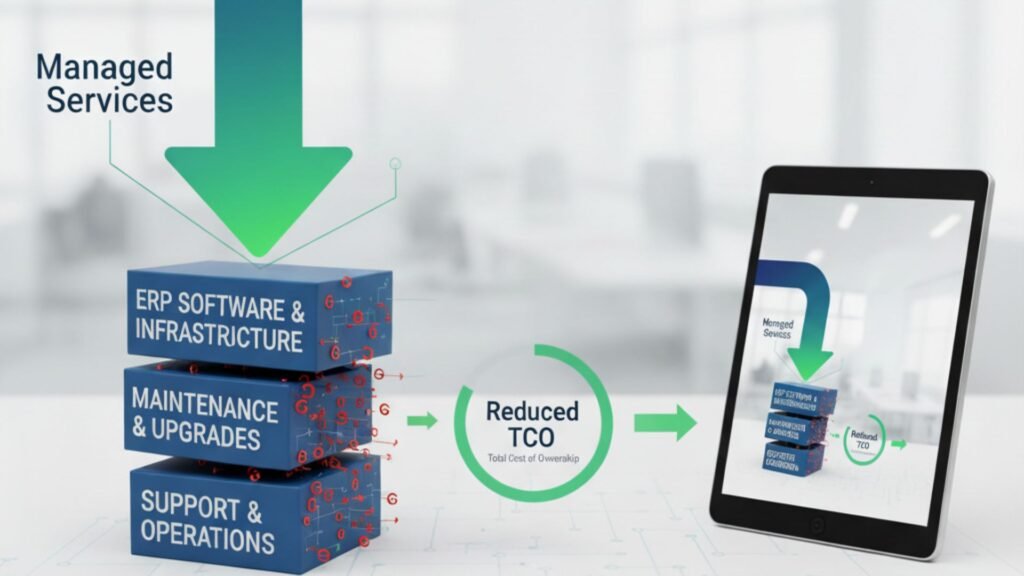How AI and Automation Are Reshaping Enterprise Resource Planning Systems
In today’s data-driven business landscape, Artificial Intelligence (AI) and automation are no longer futuristic concepts—they are revolutionizing how organizations manage their resources, optimize operations, and make data-backed decisions. Enterprise Resource Planning (ERP) systems, once viewed as rigid and process-centric, are now becoming intelligent ecosystems that empower agility, efficiency, and foresight. For businesses leveraging Microsoft Dynamics 365, this transformation is particularly profound. With AI-driven analytics, predictive automation, and real-time insights, companies can achieve operational excellence while reducing manual workloads. Let’s explore how AI and automation are reshaping ERP systems and what this means for modern enterprises—especially those working with a trusted Microsoft Dynamics 365 Partner in Texas, USA. 1. The Evolution of ERP: From Data Management to Intelligent Systems Traditional ERP systems were designed to centralize business data—covering finance, operations, supply chain, and human resources. However, these legacy systems relied heavily on human intervention for decision-making and reporting. The rise of AI and automation has shifted ERP’s role from passive record-keeping to active intelligence. Now, ERP systems like Microsoft Dynamics 365 can: This transition marks the beginning of the Intelligent ERP (iERP) era, where systems don’t just process information—they understand it. 2. How AI Enhances Modern ERP Systems Artificial Intelligence brings cognitive capabilities to ERP systems. These capabilities include machine learning, natural language processing, and predictive analytics, which make the ERP system more intuitive and proactive. 2.1 Predictive Analytics for Smarter Decision-Making With AI-driven analytics, ERP users can forecast sales trends, predict inventory needs, and detect potential disruptions before they occur. For instance, a Microsoft ERP & CRM Services provider in the USA can integrate predictive models within Dynamics 365 to help manufacturers anticipate raw material shortages or maintenance needs. 2.2 AI-Powered Financial Management AI streamlines financial operations by automating expense classification, identifying anomalies, and predicting cash flow. Tools like Microsoft Dynamics 365 Finance use AI to provide actionable insights, enabling CFOs to make smarter, data-driven decisions without delay. 2.3 Intelligent Customer Insights Customer relationship management is another domain reshaped by AI. Through Microsoft Dynamics 365 Customer Insights, businesses can analyze behavioral data, personalize engagement, and automate customer interactions—enhancing satisfaction and loyalty. 2.4 Fraud Detection and Risk Management AI algorithms continuously analyze transactional data, flagging unusual patterns that might indicate fraud or compliance issues. This is particularly valuable for industries like finance and manufacturing, where regulatory adherence and security are crucial. 3. Automation: Streamlining Business Processes While AI empowers ERP systems to “think,” automation enables them to “act.” Robotic Process Automation (RPA) and workflow automation reduce human error and increase operational efficiency. 3.1 Reducing Manual Effort ERP automation eliminates repetitive manual tasks such as invoice processing, payroll management, or inventory reconciliation. This allows employees to focus on strategic tasks rather than mundane data entry. 3.2 Intelligent Workflows Through platforms like Microsoft Power Automate, workflows can be designed to automatically trigger approvals, generate reports, or update records across integrated applications. This seamless connectivity ensures efficiency across departments. 3.3 Supply Chain Optimization In supply chain management, AI and automation work together to monitor logistics, manage vendors, and anticipate delivery delays. For example, an ERP Implementation and Consulting Services provider in Texas, USA can implement automated workflows to reorder materials based on predictive demand forecasting. 4. Key Benefits of AI and Automation in ERP 4.1 Improved Efficiency and Productivity Automating repetitive tasks allows organizations to complete processes faster, with fewer errors. AI-enhanced ERP systems ensure real-time access to accurate data across departments. 4.2 Data-Driven Decision-Making AI transforms raw business data into actionable insights, allowing leaders to make informed decisions based on facts rather than intuition. 4.3 Cost Reduction Through automation, companies can reduce labor costs, eliminate redundancies, and optimize resource utilization. Predictive maintenance powered by AI further reduces downtime and operational costs. 4.4 Enhanced Customer Experience AI-driven CRM systems help businesses predict customer needs and personalize communication, leading to better customer relationships and retention. 4.5 Scalability and Flexibility Modern ERP systems built on Microsoft’s cloud infrastructure allow businesses to scale seamlessly as operations grow. Automation makes adaptation to new processes quicker and smoother. 5. Real-World Use Cases of AI and Automation in ERP 5.1 Manufacturing Manufacturers use AI to predict equipment maintenance needs, optimize production schedules, and manage energy consumption. Dynamics 365 Supply Chain Management enables predictive analytics that minimizes downtime. 5.2 Retail AI-powered ERP helps retailers personalize marketing campaigns, automate inventory replenishment, and track customer engagement. Integration with CRM tools ensures a 360-degree view of customers. 5.3 Healthcare Hospitals and healthcare providers leverage AI-integrated ERP to automate patient billing, manage inventory for medical supplies, and enhance reporting accuracy. 5.4 Finance Financial institutions use AI for automated reconciliation, compliance tracking, and real-time fraud detection—boosting security and operational control. 5.5 Professional Services Automation in ERP streamlines project management, time tracking, and resource allocation, ensuring on-time project delivery and improved profitability. 6. Microsoft Dynamics 365: Pioneering AI-Driven ERP Solutions Microsoft Dynamics 365 stands at the forefront of AI-driven ERP innovation. With embedded AI, advanced analytics, and automation tools, it provides an intelligent, unified platform for businesses of all sizes. Some of the standout features include: Partnering with a Microsoft Dynamics 365 Partner in Texas, USA ensures that these features are implemented effectively and customized to fit specific business needs. 7. The Role of ERP Partners in Enabling AI and Automation While AI and automation can significantly enhance ERP systems, their successful implementation requires expert guidance. This is where trusted ERP Implementation and Consulting Services in Texas, USA come into play. A certified Microsoft Dynamics 365 Partner helps organizations: Moreover, Microsoft Dynamics 365 Support Services in Austin ensure continuous system optimization, performance monitoring, and issue resolution, enabling businesses to focus on growth. 8. Overcoming Challenges in AI-Driven ERP Adoption Despite its numerous benefits, integrating AI and automation into ERP systems presents challenges: 8.1 Data Quality and Integration AI models rely on high-quality data. Businesses must ensure their data is clean, consistent, and integrated across departments. 8.2 Change Management Employees may resist automation due to fear of job displacement. Strong communication and training are key to promoting
How AI and Automation Are Reshaping Enterprise Resource Planning Systems Read More »




